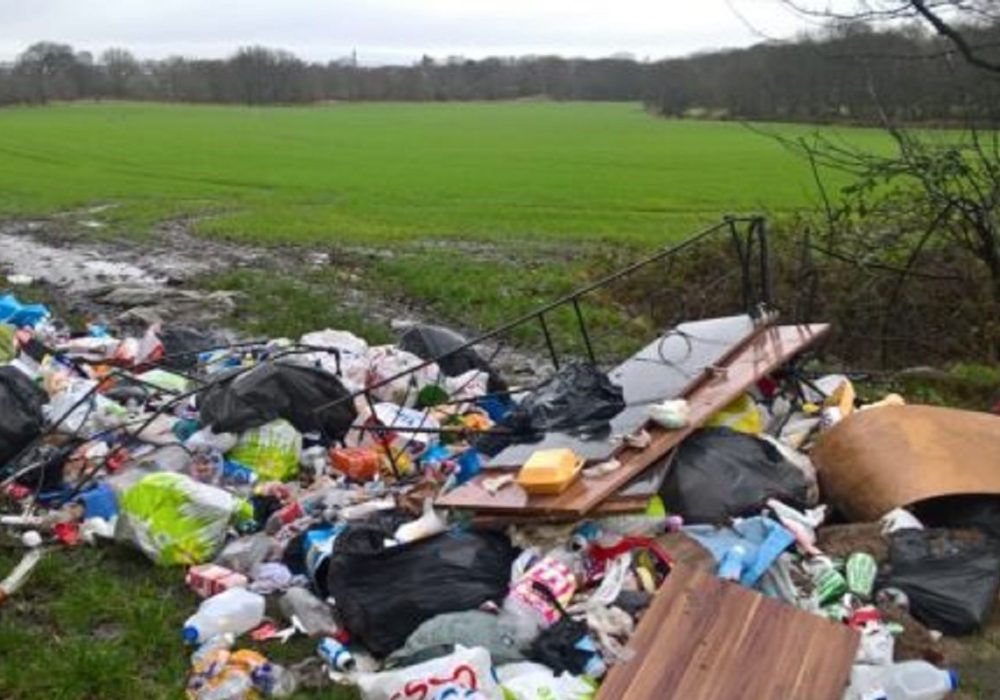
Some fly-tipping data insights
When it comes to the environment and waste management matters there is always considerable interest in the data collected about fly-tipping. 2020-21 may be regarded as something of a peak for illegal dumping, because the total number of fly-tip incidents was up by 16% on the previous year, 2019-20. Covid lockdowns and reduced waste services were certainly factors that contributed to the rise.
However, as the impact of the pandemic has largely receded, the most recent data, the annual 2021-22 fly-tipping statistics for England, suggest incidents fell by 4% when compared with 2020-21. However, this still means 1.04 million incidents were recorded.
From a breakdown of the size of each fly-tip, the data shows that small to medium sized loads were most commonly tipped:
- Car boot sized – 32%
- Small van sized – 26%
- Tipper lorry sized – 3.6%
Smaller sized fly-tip loads tend to be of household waste, which makes up a total of around 2/3rds of the total. Tipper-lorry sized loads are of course indicative of organised criminal activity, and the cost of cleaning up the 37,000 recorded incidents of this size last year was £10.7 million.
Regionally, hotspots for fly-tipping were London and the north-east, with the south-west the ‘coolest’, with just 20% of the incidents per capita compared to London.
However, in signs that LA’s and the courts have toughened up their response to the problem, the data shows significant efforts to increase enforcement action, including:
- Total enforcement actions – +11%
- Court fines – +190%
- Statutory notices – +41%
- Duty of care inspections – +20%
Commenting on new regulations for the disposal of soft furnishings that contain Persistent Organic Pollutants (POPs) are likely to deepen the fly-tipping problem, FCC Environment head of municipal treatment, Adrian Clarke, said: “This undoubtedly will mean additional costs for local legitimate waste carriers who will struggle to pass these costs back to their customers. This will no doubt create more opportunities for unethical waste operators to exploit, creating an environment that will only see the cost of the UKs fly-tipping increase going forward.”
Every fly-tip incident is one too many…
Fly-tipping can be viewed as a ‘victimless’ crime. However, besides the cost of clean-up, it is an anti-social activity which blights communities, undermining the quality of life. Ultimately, residents end up footing the clean-up bill, with councils spending revenue that is sorely needed elsewhere to meet wider social needs.
Far from fly-tipping being a victimless crime, fly-tipping can also pose a hazard to public health, through toxic waste such as asbestos, and attracting vermin. In some cases such areas can also attract other anti-social behaviour. Anyway we look at it, every incident is one too many and the practice is a scourge that needs to be brought to an end.
Whitespace fly-tipping solution
Whitespace waste management solutions let councils take control of fly-tipping with well-designed technologies that integrate with existing infrastructure, processes and initiatives.
- Webform integration – Add a reporting form to your existing council website to allow residents to raise incidents of fly-tipping and record essential details. A familiar visual interface lets residents indicate precisely where an incident has occurred on a mapping system. This form also allows simplifies admin by automating collection of the fly-tipping reporting data that is required by central government.
- Resident Mobile App – The Whitespace Resident Mobile App is a very powerful tool for communicating with residents on waste management. To help with fly-tipping, it provides the same functionality on mobile as the webform, allowing residents to raise incidents when they encounter fly-tipped material in ‘the wild’.
- Analytics – Fly-tipping data analytics allows information to be analysed and visualised to identify trends such as new hotspots, where lighting or CCTV could be deployed. Analytics is also very useful for testing changes to the waste management function of councils. For example, changes to bulk household waste collection, or the closure of sites, or the impact of charging.
- Clean-up operations – Integration with in-vehicle data systems allows operatives and teams to be notified in real-time of incidents that need to be cleaned up. The system is also capable of managing clean up action in line with SLA’s to make sure that high priority incidents are managed appropriately by informing cleansing crews when clean-up operations are time sensitive.
Promote greater resident environmental responsibility with Whitespace
The requirement for fly-tip clean-up operations is unlikely to disappear overnight. However, it is possible to reduce the need through driving behavioural change by residents. Whitespace’s resident app is perfect for promoting waste management and environmental messages.
Driving a more responsible approach to environmental matters by communities must be front and centre in any short, medium and long term strategy aimed at tackling our environmental problems. Using the Resident App allows delivery of your council’s environmental communications strategy straight to the smartphones of your residents.
To find out more about Whitespace Municipal Waste Management solutions, please get in touch by calling us on +44 (0)1483 231 650 or emailing us at info@whitespacews.com
